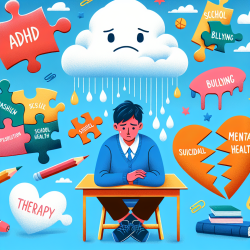Introduction
The West Africa Ebola epidemic was not only a significant public health crisis but also a profound ethical challenge. The research article titled "Critical role of ethics in clinical management and public health response to the West Africa Ebola epidemic" by Folayan et al. (2016) explores these ethical considerations in depth. This blog aims to provide practitioners with insights into improving their skills by integrating ethical outcomes from the research or encouraging further exploration of these critical issues.
Ethical Challenges in Clinical Management
The Ebola epidemic highlighted numerous ethical challenges, particularly in the areas of prevention, containment, and clinical care. Practitioners must grapple with the appropriateness and scope of quarantine and isolation, the obligation to provide care amidst inadequate personal protective equipment, and the ethical standards of care owed to those under quarantine.
Incorporating these ethical considerations into clinical practice involves:
- Ensuring that quarantine measures are ethically justified, minimally restrictive, and accompanied by adequate support for those affected.
- Advocating for equitable access to experimental treatments and ensuring that healthcare workers have the necessary resources to perform their duties safely.
- Maintaining transparency and communication with patients and communities to foster trust and compliance with public health measures.
Research Ethics in Epidemic Response
The article emphasizes the importance of ethical considerations in research during public health emergencies. This includes the design of studies for experimental vaccines and treatments, the sharing of data and biospecimens, and the compassionate use of experimental drugs.
Practitioners can enhance their research ethics by:
- Engaging in ethical discussions and training to understand the complexities of conducting research in crisis settings.
- Collaborating with international partners to ensure fair benefit-sharing and access to research outcomes for affected communities.
- Implementing robust informed consent processes, even in challenging circumstances, to respect participants' autonomy and rights.
Global Health Responsibilities
The research underscores the ethical obligation of developed countries to support healthcare systems in affected regions. This involves strengthening local healthcare infrastructure and ensuring access to therapeutic and preventive interventions.
Practitioners can contribute to global health efforts by:
- Advocating for policies that promote equitable access to healthcare resources and interventions globally.
- Participating in international collaborations to share knowledge, resources, and best practices.
- Supporting initiatives that aim to build resilient healthcare systems capable of responding to future epidemics.
Conclusion
Integrating ethical considerations into clinical management and public health responses is crucial for addressing the challenges posed by epidemics like Ebola. By learning from past experiences and continuously engaging in ethical discourse, practitioners can improve their skills and contribute to more effective and equitable healthcare responses.
To read the original research paper, please follow this link: Critical role of ethics in clinical management and public health response to the West Africa Ebola epidemic.










